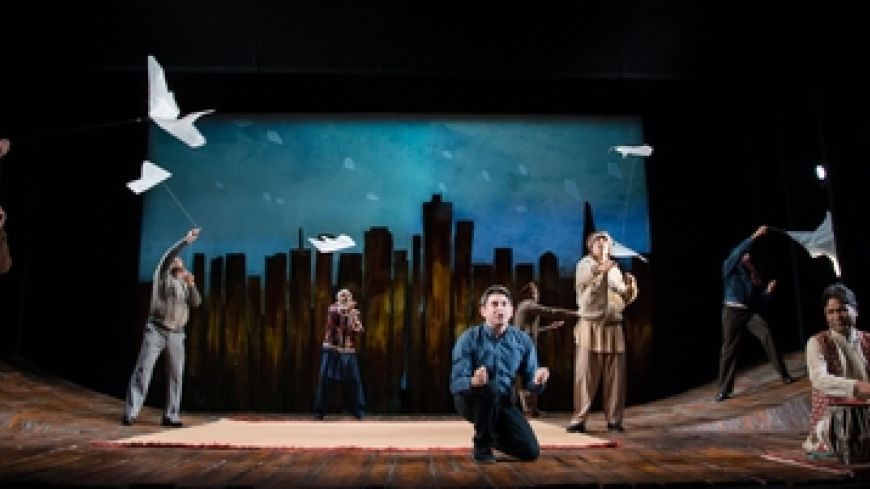
“I became what I am today at the age of twelve … “
So Amir begins to unearth a buried past of unatoned sins that has been clawing its way out since that overcast winter of 1975.
This is the story of his relationship with an abandoned homeland and lost best-friend, Hassan – the greatest kite runner in Kabul. Kite fighting tournaments were a tradition in Afghanistan and the real fun started when a kite was cut and the kids chased it down. The most coveted prize, the trophy of honour, being the last fallen kite.
The boys play, get up to mischief and act out child-like wars together in the grounds of Amir’s fathers house in the newest and most affluent neighbourhood. But at the end of the day Amir passes the rosebushes that lead to the mansion and Hassan returns to the mud hut in the grounds where he was born.
Tradition, racial and ethnic divisions between the “pure” Pashtun and Hazara both embrace Hassan and his father Ali within the family and hold them at a distance as servants.
There is also a certain remoteness between Amir and his father, who worries over his son’s bookish ways and apparent inability to stand up for himself. This aloofness is embellished by his open love of the always selfless Hassan, to a point where jealous and selfish Amir acts in passive-aggressive ways, blurring friend and servant and ultimately widening an abyss.
These tensions might remain mild until fanned by those like Assef “The Ear Eater”, local bad boy and incipient sociopath. His brutality will provide the pivot around which this penitential tale of betrayal versus rescue will turn and spiral down the years, through Russian invasion and rule of the Taliban.
From his refuge in America years later Amir finds that there may be a way to be good again, to redeem the past.
This sweeping story well performed, elegantly told and neatly staged, with projected backgrounds and live tabla playing.
The themes of redemption, family, politics and the past are neatly woven throughout, but the rug is somewhat pulled out from it fulfilling epic potential. While the play lifts from the pages like the illustrated stories treasured by the boys, the telling could have more passion. The “baby-talk” used to depict their youth grates a little and the fight scenes could have more punch.
Like the falling prize kite, it is well worth catching.
Show Times: 9 to 14 October 2017. Evenings 7.30pm, Matinees Wed and Sat 2.30pm.
Duration: 2 hours 35 mins (includes 20 min interval)
Tickets: £18 to £31.50
Suitability: 14+

